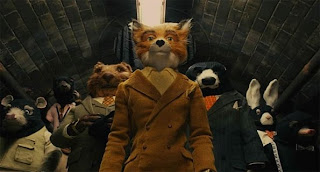
This is a difficult experience. It's a disturbing disaster film because you don't actually see the disaster. This brilliantly focuses the story into a character-driven experience. What haunts you is the unknown, but what consumes you is the hope and love the two main characters share. All this is attributable to Cormac McCarthy, but to have it actually translated onto the screen requires some skill, particularly from the cast.
The performances are what sell it. Viggo Mortensen as "Man" and Kodi Smit-McPhee as "Boy" avoid all of the cliches that could have cheapened the experience. Mortensen gives off a hint of determination while drowning in desparation that is at its peak in flashback scenes with his wife, "Woman" (played by Charlize Theron). Smit-McPhee plays a boy that is unlike any child in any other film. While he is open and optimistic to everything unfamiliar, he is also skeptical and fearful, because this man is all he has ever known. He is of another world because he knows nothing of our world.
What ruins the experience is the pacing. Anything based on work from McCarthy must be given time to be absorbed. McCarthy writes in prose and avoids certain punctuation for the purpose of being more direct and using "simple declarative sentences." He believes in not "blocking the page up with weird little marks." So why block this film up with more cuts than what it needs? To be simple is to be real and to be real requires as few edits as possible.
Director John Hillcoat and editor John Gregory should have learned a lesson from the Coen brothers (a.k.a. Roderick Jaynes) and slowed the tempo for this movie down. It might not be fair of me to hold the same standards for "The Road" as "No Country for Old Men," but the attitude and rhythm of the books (or at least the pieces I have read of them) are very much similar. The Coen brothers were successful because they submitted completely to McCarthy's narrative tone. Hillcoat and Gregory, on the other hand, are a bit more traditional in their approach and it clashes with their story.
Nevertheless, the visuals, the writing, and the acting all come together and manage to bring this collaborative struggle between a father and son to the screen and truly give a sense of each being "the other's world entire." I have not read the book, but after seeing this film I am now inspired to and know that I must. Given that, I render the film a success.





